Young and beautiful
The lobster’s reputation for enduring love may be an urban myth, but it’s helping the National Lobster Hatchery in Padstow do great work in enhancing stocks around Cornwall, says Alice Wright.
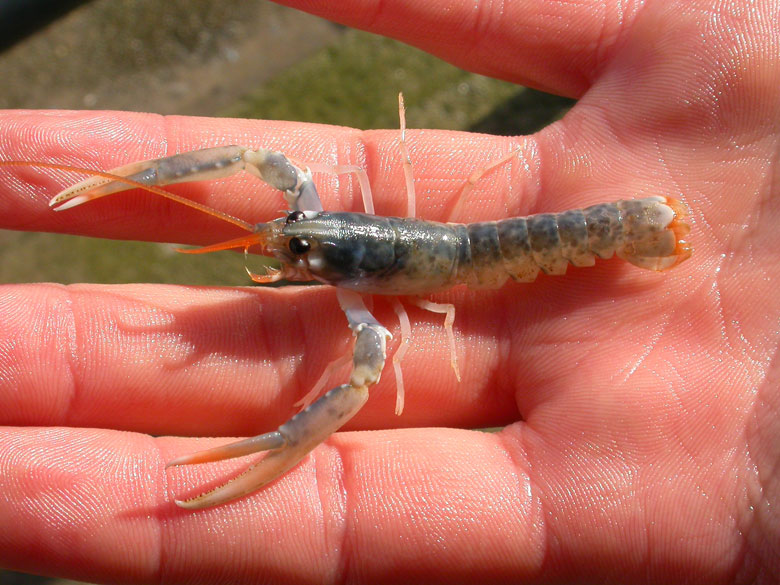
A lobster may not seem the most romantic of creatures – except when served up at a fancy restaurant with a bottle of bubbly. But the crustacean has become an unlikely love token thanks to a scheme from the National Lobster Hatchery, with a bit of help from Friends.
The hatchery, in Padstow, Cornwall, rears baby lobsters from eggs, nurturing them through their most vulnerable early stages before releasing them into the wild around Cornwall and the Isles of Scilly. Its work is vital to enhancing lobster stocks, and to raise additional funds for this important programme the hatchery came up with the Adopt a Lobster campaign. For £3 members of the public can adopt their own baby lobster, name it, and then track its release through the hatchery’s website.
The scheme has proved popular, with thousands of lobsters adopted each year: Crustephanie Newberg and Baron Von Clawston are just a couple of those released so far in 2016. Even Prince George is among the proud “parents”: when Prince Philip visited the hatchery in 2014 staff presented him with an adoption certificate on behalf of the young royal. The story was picked up internationally and attracted a flurry of adoptions from the US.
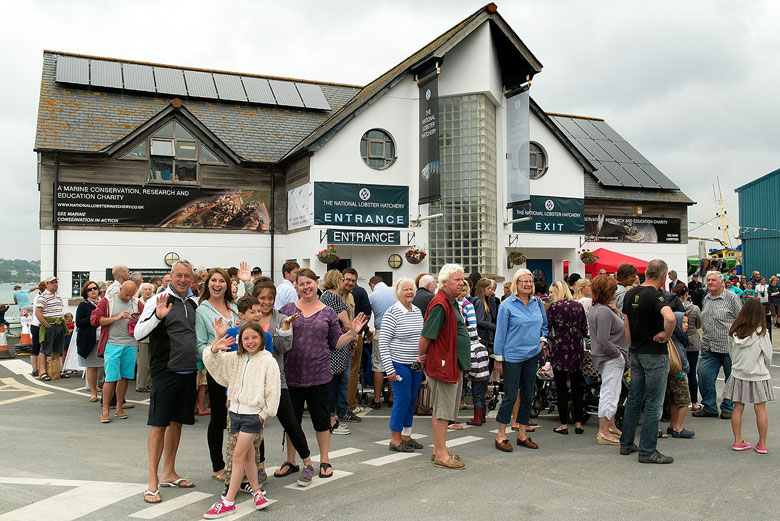
The adoption programme has also tapped into the lobster’s reputation as an emblem for enduring love – at least among fans of popular sitcom Friends. Sarah Boothroyd, who manages the hatchery’s accounts and website, explains that in one episode character Phoebe says friends Ross and Rachel are meant to be together because “he’s her lobster”, describing how lobsters mate for life and walk around “claw in claw” in old age. It’s not actually true: outside of the mating ritual itself, lobsters are pretty ferocious to all and sundry, including each other, which is a major reason why lobster aquaculture is such a challenge. Nevertheless, this endearing image captured people’s imaginations and the hatchery found itself fielding enquiries from couples who wanted to adopt lobsters for their wedding guests, or people who wanted to adopt a pair as a wedding present or as a romantic gift for a partner.
Spotting an opportunity, they now offer “His & Hers” adoption packages – or “Lobster Sweethearts” for same-sex couples – and Adopt a Lobster wedding favours. “Quite a few people have lobster-themed weddings,” says Sarah. “We have couples who will adopt 150 lobsters for all their guests. You then have your own wedding party of lobsters released into the sea.”
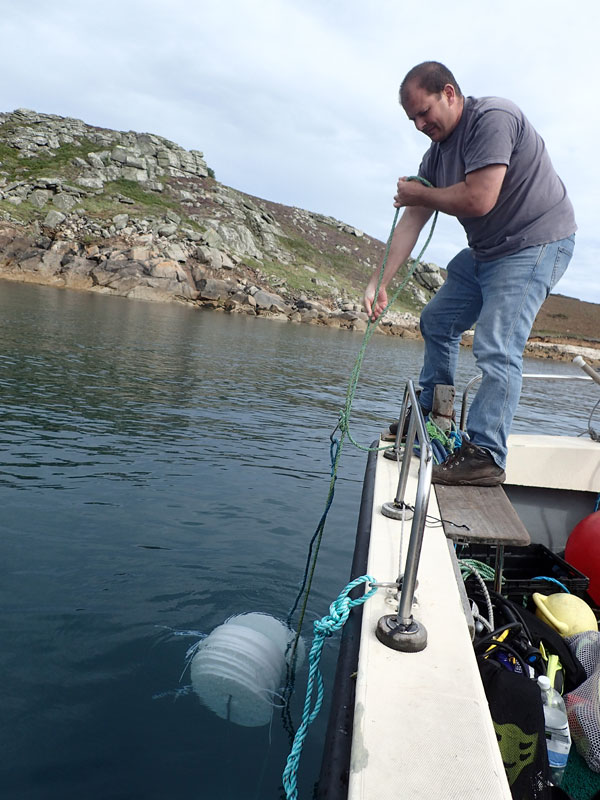
People have a lot of fun coming up with names for the lobsters they adopt for themselves or as gifts: Sir Sea-Cucumberington, Tzarina Haddockovisky and Duchess Squidly-McCuttle were among those that one imaginative couple came up with when they adopted lobsters as wedding favours. But of course sponsors are also attracted by the more serious aspect of helping the hatchery support marine conservation and sustainable fisheries.
Dominic Boothroyd, the hatchery’s general manager, explains that lobster is an important species both economically and socially. UK catches are worth about £30 million a year, and they tend to be targeted by fishermen living and working in small ports and harbours, such as those around Cornwall and the Isles of Scilly. “The species is an incredibly important driver for keeping small coastal communities alive,” he says.
But its high value and heavy fishing pressure means the species is also particularly vulnerable to stock collapse. The work at the National Lobster Hatchery centres around the vital issue of how to enhance lobster populations, and provide a safety net should stocks collapse. Alongside its stocking programme the hatchery also carries out research that is used around the world, and public education through its popular visitor centre at Padstow and outreach programmes.
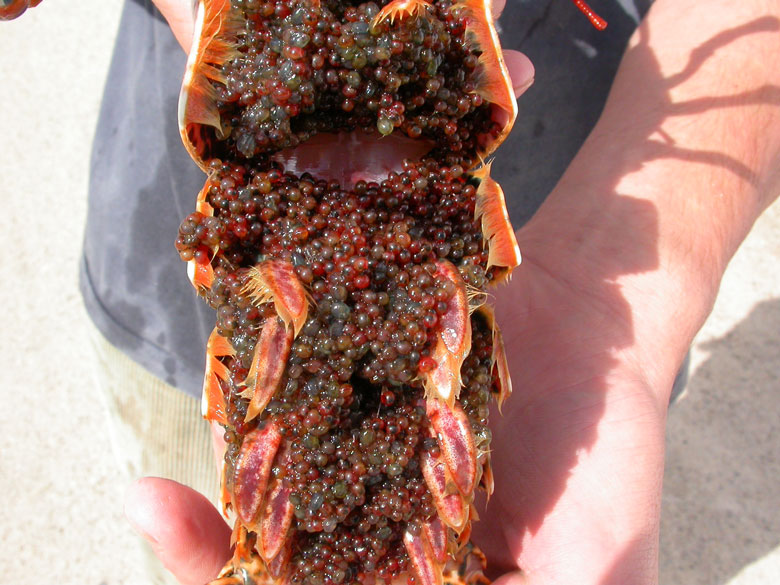
A large female lobster can carry about 20,000 eggs, but in the wild only one of these is thought to survive to maturity. The hatchery’s innovative techniques improve this survival rate by about 1000. Fishermen, shellfish merchants and restaurants lend egg-carrying lobsters – called berried hens – to the hatchery where they are kept until the eggs hatch. The delicate larvae and juveniles are carefully reared until they are about one-and-a-half to three months old. They are then released around the coast of Cornwall and the Isles of Scilly, either from the shore, at sea by fishermen, or by divers who deliver them directly to suitable habitats on the seabed. In 2014 the hatchery released more than 53,000 juvenile lobsters.
“We’re jumping over that bit where they’re vulnerable by taking them through that stage,” says Dominic, adding that the evidence suggests survival rates are high for lobster reared in this way. In the long term, the hatchery hopes to apply the concepts and procedures it has developed for lobster to other marine species.
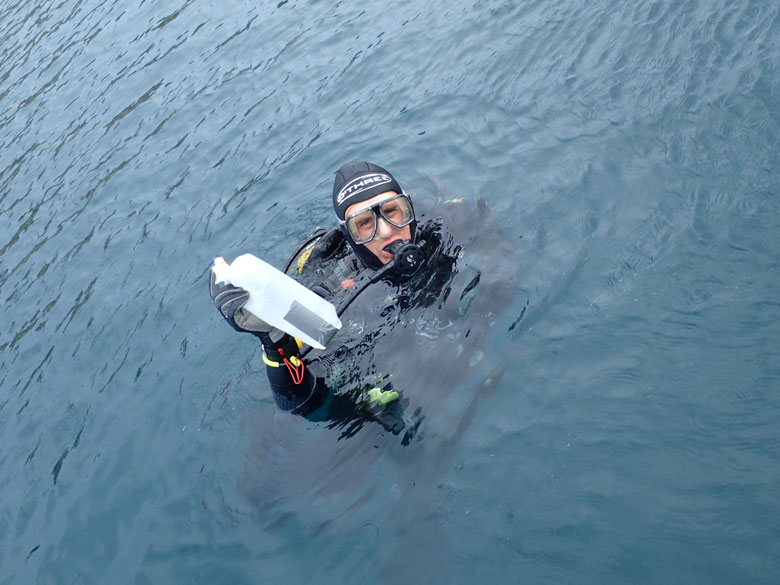
And building on the success of its adoption initiative, the charity now also runs a Buy One, Set One Free scheme, allowing businesses that benefit from healthy lobster stocks to help support them. Participating restaurants and fishmongers ask customers to donate £1.75 when they buy a lobster that they then match, giving £3.50 to the hatchery to raise and release a baby in its place.
As with Adopt a Lobster, the initiative not only raises money for the hatchery, but also awareness of its work and the importance of sustaining marine resources. So hopefully there will be many happy lobster couples scuttling around our coastline for generations to come.





